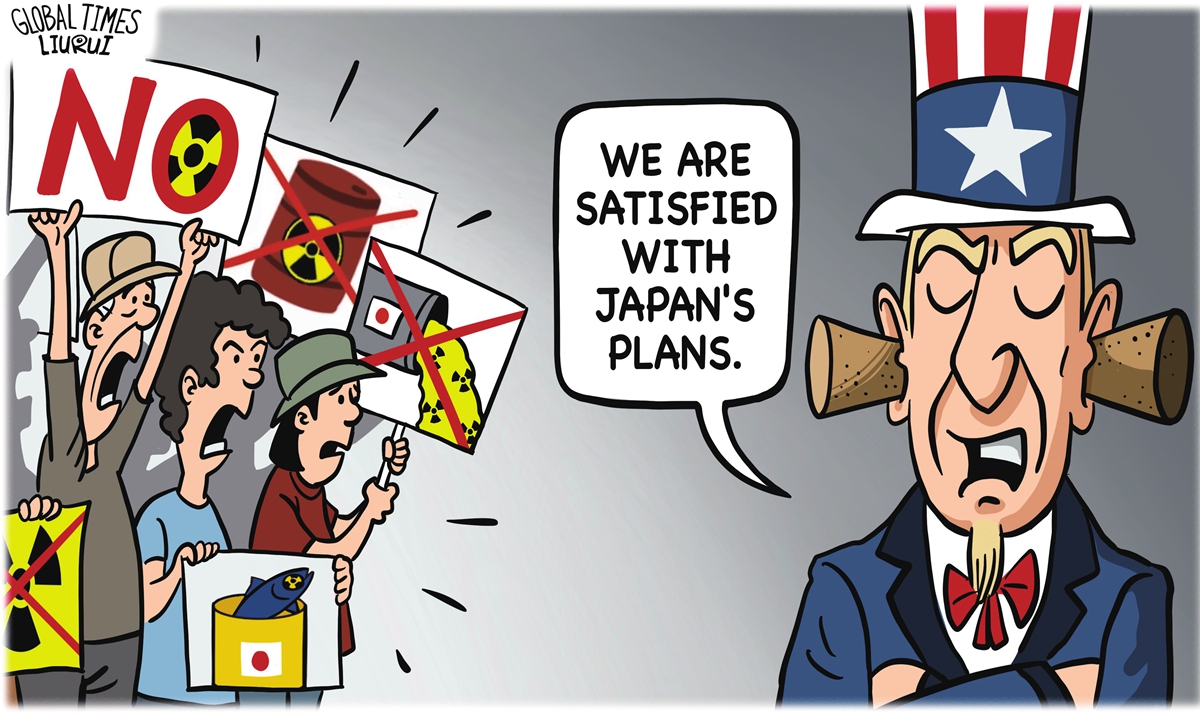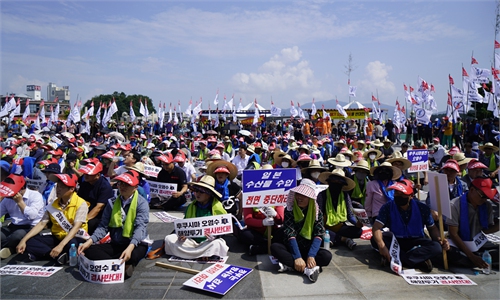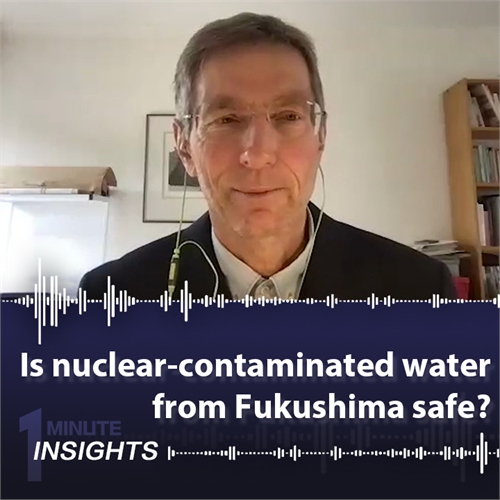
Illustration: Liu Rui/GT
From Thursday, Japan will forever be labeled as "an environment polluter," as it begins to dump the nuclear-contaminated water from the crippled Fukushima Daiichi nuclear power plant into the ocean. China has announced it would suspend all seafood imports from Japan. Now what concerns most Chinese people is: Is the seafood produced along China's coast still edible?First, we must listen to the opinions of China's maritime monitoring and quality inspection authorities. They closely track the changes of quality in China's coastal water. Once radioactive substances exceed the accepted standard and affect the safety of seafood, they issue warnings and take corresponding measures.
Second, the condemnation of the Chinese government over Japan's action of dumping the nuclear-contaminated wastewater into the sea demonstrates a responsible attitude toward the Chinese people and humanity as a whole. There is no need for panic among the people on the Chinese mainland. Our concerns should not exceed those of the Japanese, South Koreans, people in the island of Taiwan, Filipinos, Indonesians or even North Americans.
Although the Chinese mainland is close to Japan, we are surrounded by the first island chain after all. Some Chinese analysts believe that this island chain will somewhat block the infiltration of Japan's nuclear-contaminated water, making the damage to the coast of the mainland smaller or later than to the countries and regions on the island chain. In other words, when Japan's nuclear-contaminated water reaches the coast of the Chinese mainland, the degree of dilution should be much greater than that in the first island chain. It is Japan itself that faces more risks.
Fishermen in Japan also oppose the dumping of nuclear wastewater, because they know that after the discharge, it will be difficult for Japan's fish and other aquatic products to be sold to the world. Not only the Chinese, but also Koreans and other Asians will most likely not eat tuna and salmon imported from Japan anymore. Let the Japanese eat all the fish produced along the coast of Japan, or give them to Japan's allies, the Americans, or even Taiwan island's Democratic Progressive Party. It is possible that some other foods in Japan will also be banned.
China's opposition to Japan's nuclear wastewater dumping is for the common good of the international public. In the end, it should not be China that is the most anxious. One possibility cannot be ruled out: After Japan dumps the nuclear-contaminated water, the price of aquatic products from the Chinese mainland in the international market will rise relatively compared with other regions.
Due to Washington's support and connivance, Western public opinion, which used to attach a great deal of importance to environment protection, has remained lukewarm toward Japan's immoral moves. Japan will be more obedient to Washington in the future. However, the costs, including direct costs and indirect costs, will be borne by major Western countries that have coastlines.
The Chinese government's strong criticism of Japan's nuclear-contaminated water dumping is undoubtedly necessary from the diplomatic point of view. However, our public awareness of how much China's coastal seafood will be affected does not necessarily have to be directly tied to the country's diplomatic battle. We should trust the real-time reports of national monitoring agencies, and at the same time take into consideration the reactions of people around the world. It is believed that German and European environmental organizations will closely follow the matter. Their subsequent attitudes can also serve as references for assessing the actual risks. Ultimately, our lives and safety should be in our own hands.



